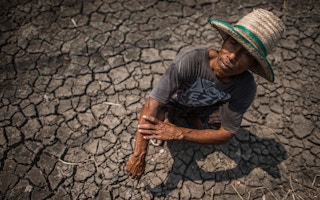Every year, the stories that Eco-Business readers find most interesting reveal something about the zeitgeist. The year gone by was marked by climate misinformation running amok, “bad” news getting vilified, and some climate victories coming through — albeit few and far between.
1. No room for gloom? Journalists debate media obsession with ‘solution’ angle for climate reporting
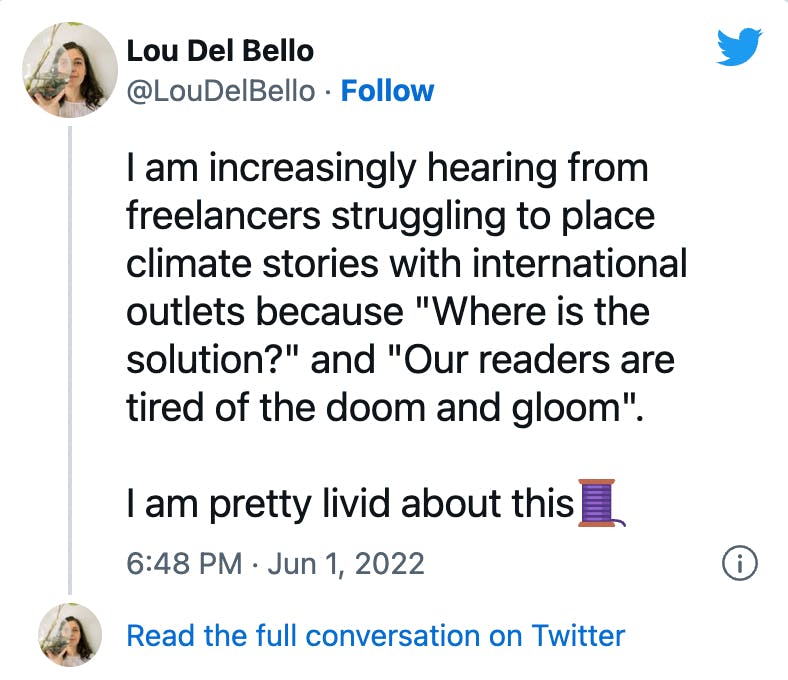
Lou Del Bello tweeted about the need to report (and read, hear or watch) the bad news.
With global readership dwindling and more people growing indifferent to the news, Western outlets came under fire for their increasingly apparent aversion to climate crisis stories from developing countries in an effort to avoid being seen as harbingers of “doom and gloom.”
This came as more newsrooms pushed for “positive” solutions-based stories, despite unknowingly contributing to denialism and the erasure of these pressing issues—just to appease some “privileged” readers complaining of climate anxiety.
“You know who is not tired of the doom and gloom? People living in places where complex problems are part of their daily lives, and who can’t afford to get tired of the negativity,” tweeted Delhi-based climate reporter Lou Del Bello.
2. What does true sustainability look like in the hotel industry?

The front view of the Raffles Hotel Singapore. Image: Eco-Business.
After some two-odd years in varying degrees of lockdown and quarantine, it was inevitable that the restless and claustrophobic would turn to “revenge travel” to shake off the protracted cabin fever. The hotel industry gladly swung its doors open, having been among the hardest-hit sectors at the height of the pandemic.
Notably, tourism generated about a tenth of carbon emissions worldwide in 2019. To stay in line with keeping global warming to 2 degrees Celsius, the hotel and hospitality industry would need to reduce emissions by 90 per cent before 2050, industry group Sustainable Hospitality Alliance said.
It remained unclear, however, if planting a native tree for every 25 Singapore Slings served would make any meaningful difference.
3. How did Covid change sustainability events?
 Teymoor Nabili and Veemal Gungadin tell the Eco-Business Podcast how a pandemic transformed the way sustainability events are conceived and organised.
Teymoor Nabili and Veemal Gungadin tell the Eco-Business Podcast how a pandemic transformed the way sustainability events are conceived and organised.“Zoom fatigue” aside, the abrupt shift to virtual events—forced upon us by Covid-19 restrictions—inadvertently revealed that sustainability events could be more… well “sustainable.”
Digital event platforms effectively reduced the carbon footprint of conferences—cutting out air travel, the staggering cost of air-conditioning large venues, and catering that relied on single-use plastics. This was in stark contrast to the pre-pandemic World Economic Forum annual meeting where some 1,500 individual private flights had descended on Davos, chartered by millionaire stakeholders, lobbyists, and world leaders alike, to discuss climate solutions among other things.
4. Child scavengers — casualties of the Philippines’ war against waste
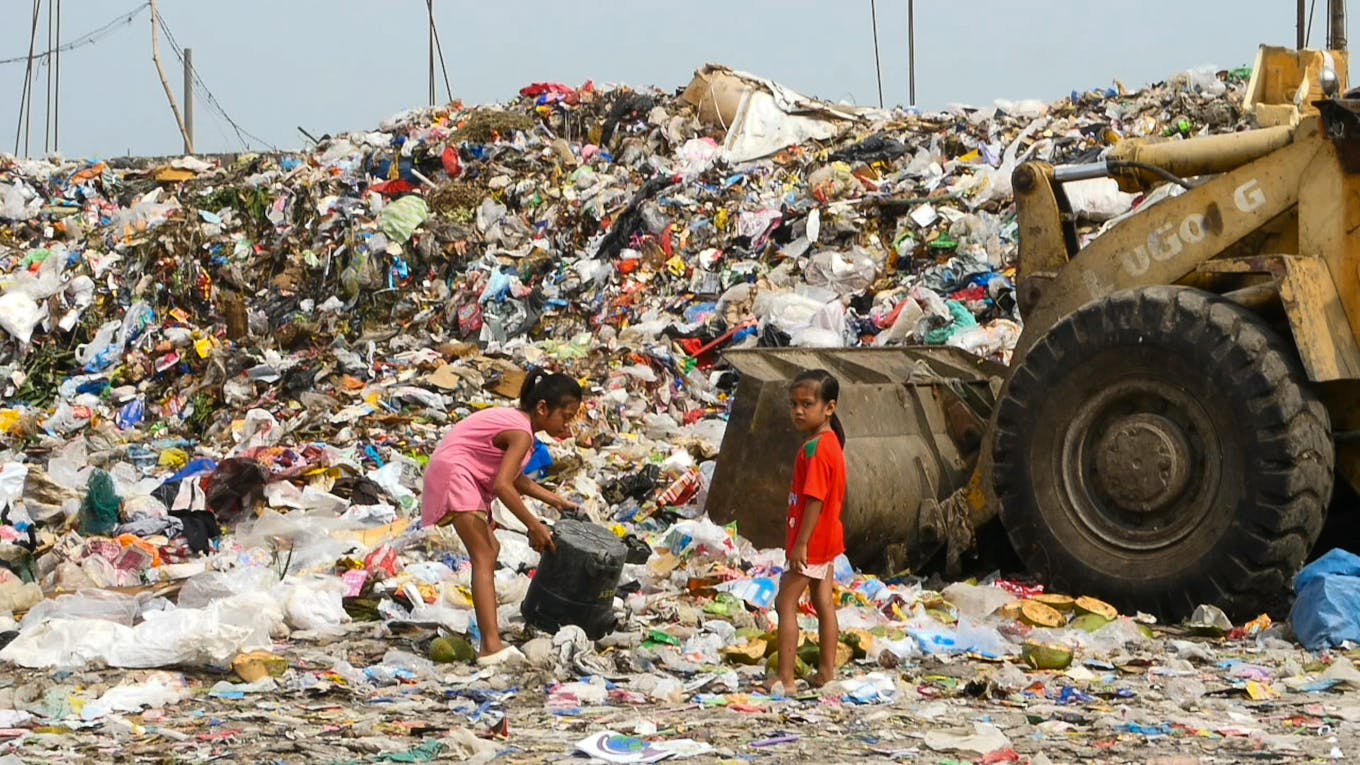
Young girls throw trash in an open waste dump in the Angono municipality in the Rizal province of the Philippines, in June 2022. Image: George Buid
Exposed to respiratory diseases, congenital deformities, and skeletal deformities due to carrying heavy loads, child waste-pickers in the Philippines make less than a dollar a day scavenging plastic water bottles from landfills—even some two decades after the closure of the infamous Smokey Mountain open dumpsite and the tragedy of the Payatas waste avalanche.
In this evocative special report, Eco-Business documented the lives of child labourers in Tondo and Angono, some of the Philippines’ most impoverished districts.
5. As Singapore mulls 2050 net-zero, some advocates wonder: can we do better?
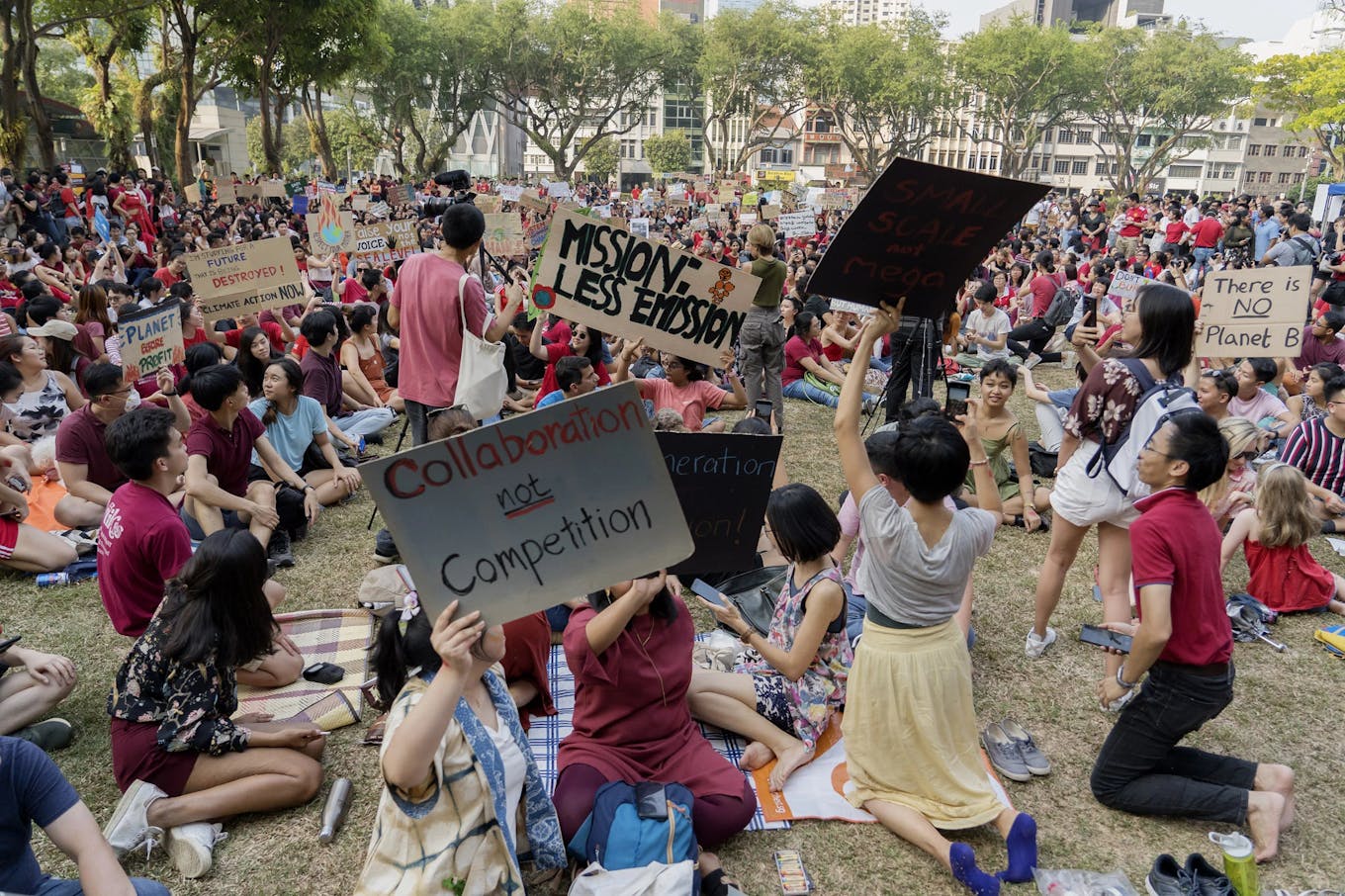
Singapore’s first climate rally, in 2019. Image: Eco-Business/ Liang Lei.
Ahead of Singapore unveiling its net-zero emissions by 2050 target in October this year, environmental groups flooded a public consultation on the then-proposed goals with calls for more ambitious decarbonisation efforts and stricter national targets to slash oil and gas outputs.
Singapore has since pledged to reduce emissions to around 60 million tonnes of carbon dioxide equivalent (MtCO2e) in 2030, as part of its Long-Term Low-Emissions Development Strategy.
6. Investors losing their appetite for ESG since Ukraine invasion: study

Investors were asked: On a scale of 0 to 10, how much is ESG analysis incorporated into your investment decision-making? The grey shading indicates less incorporation of ESG factors, the red shading indicates more. Source: HSBC ESG Sentiment Survey
Amid uncertainty and increased geopolitical tension between Russia and the West, investors became increasingly wary of prioritising environmental, social and governance (ESG) factors in their financial decision-making.
A June study by HSBC found that three-fifths of executives no longer saw ESG parameters as a primary consideration in their investments, showing a waning appetite for sustainability-led funding across all regions and asset classes, especially in the United States and Europe.
7. Mineral-hungry China funds Indonesia’s ambition to dominate EV space; stakes claim on nickel
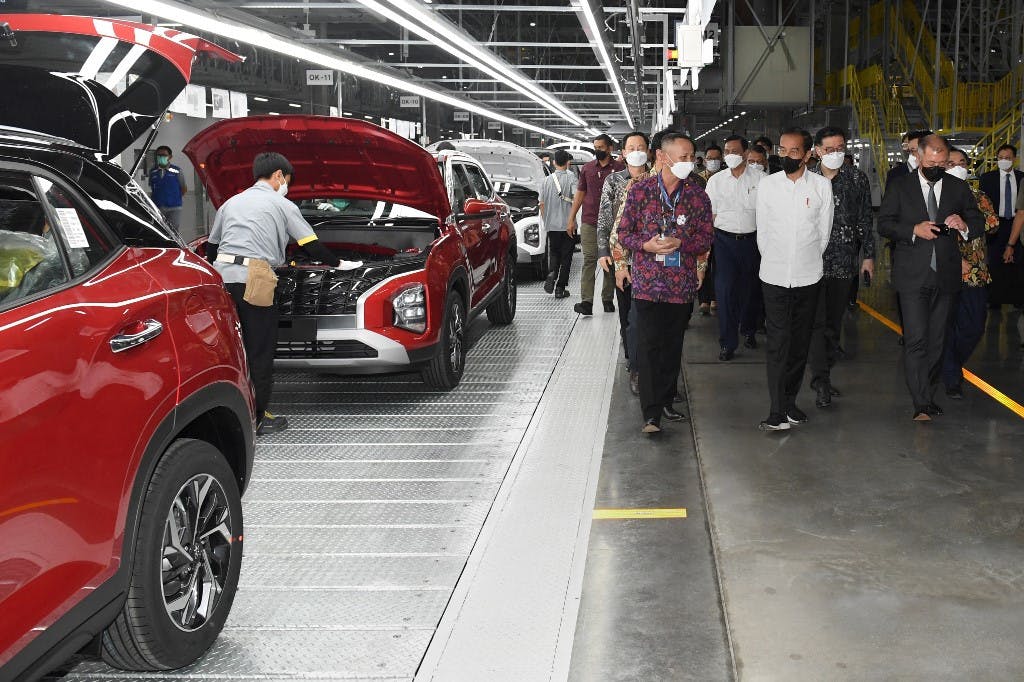
Indonesia’s President Joko ‘Jokowi’ Widodo (2nd from right, in white) visiting a Hyundai factory in Bekasi, West Java in Indonesia earlier this year. Image: Indonesia Presidential Palace
The G20 summit in Bali enabled Chinese electric vehicle battery-maker and Tesla supplier Contemporary Amperex Technology and Hong Kong-based CMB International to strengthen Beijing’s foothold on the EV market and control of Indonesia’s vast nickel deposits.
With some US$2 billion worth of financing from Chinese firms, the Indonesia Investment Authority hopes to spur the county’s strategic ambitions to “become a meaningful player in the global EV supply chain” amid talks of establishing an OPEC-style nickel cartel, Eco-Business reported. Indonesia is poised to supply 50 per cent of the world’s refined nickel by 2030, as demand for more electric and hybrid vehicles swells.
8. Petronas natural gas chief: the world’s dependence on fossil fuel is not easy to break
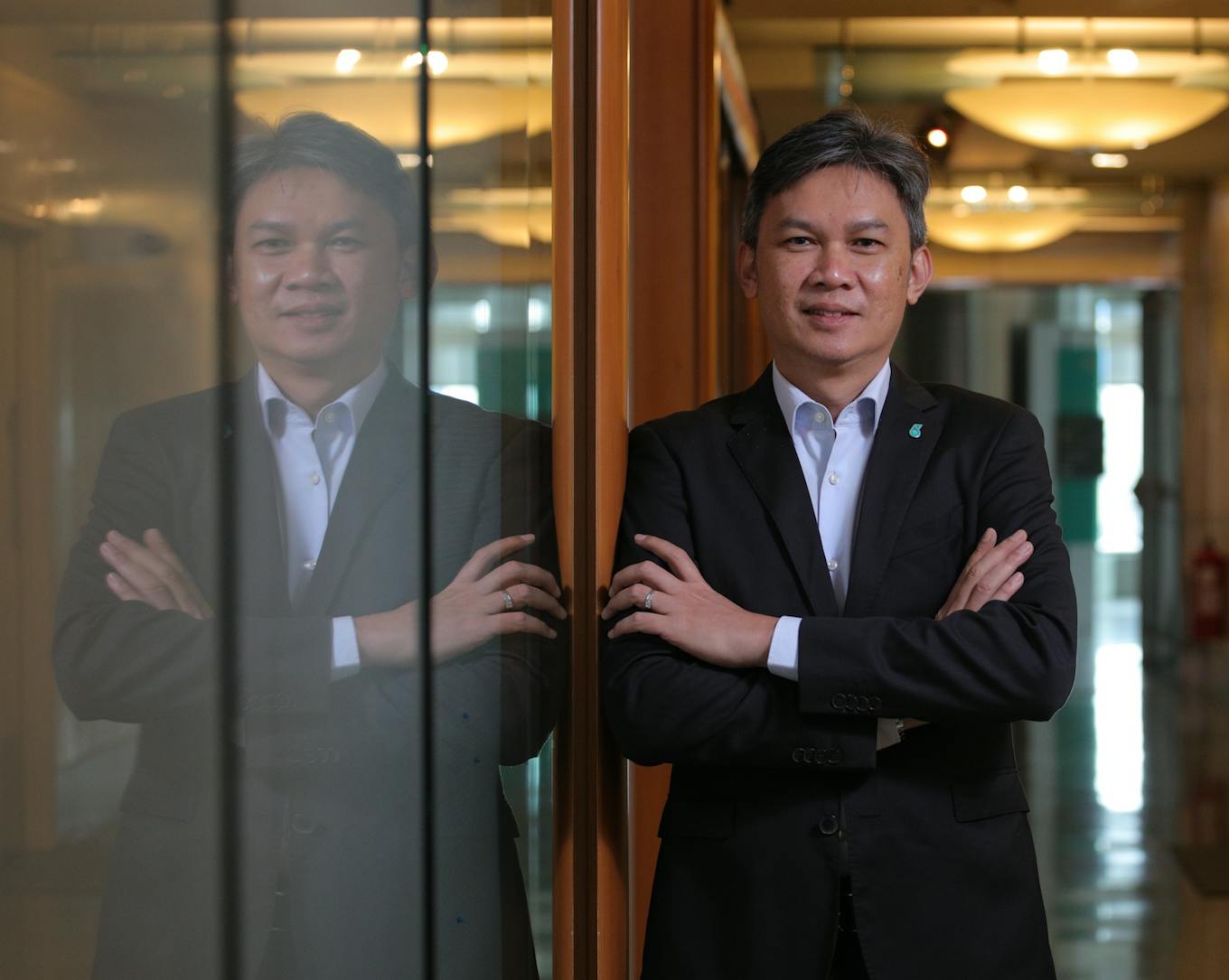
Abang Yusuf Abang Puteh, Petronas’s natural gas chief, believes that natural gas is still an attractive industry for young people to work in, as natural gas is complementary to the growth of renewables. Image: Petronas
Petroliam Nasional (Petronas), Malaysia’s US$150 billion state-owned energy giant and the world’s ninth-largest oil and gas company, is one of the champions of natural gas as a “bridging” fossil fuel amid growing calls for an energy transition.
Eco-Business sat down with Petronas’ vice-president of its liquefied natural gas (LNG) assets, Abang Yusuf Abang Puteh, to talk about the climate crisis, carbon capture, methane leaks, and lobbying.
9. Erratic monsoons cast long shadow over India’s economic heartlands
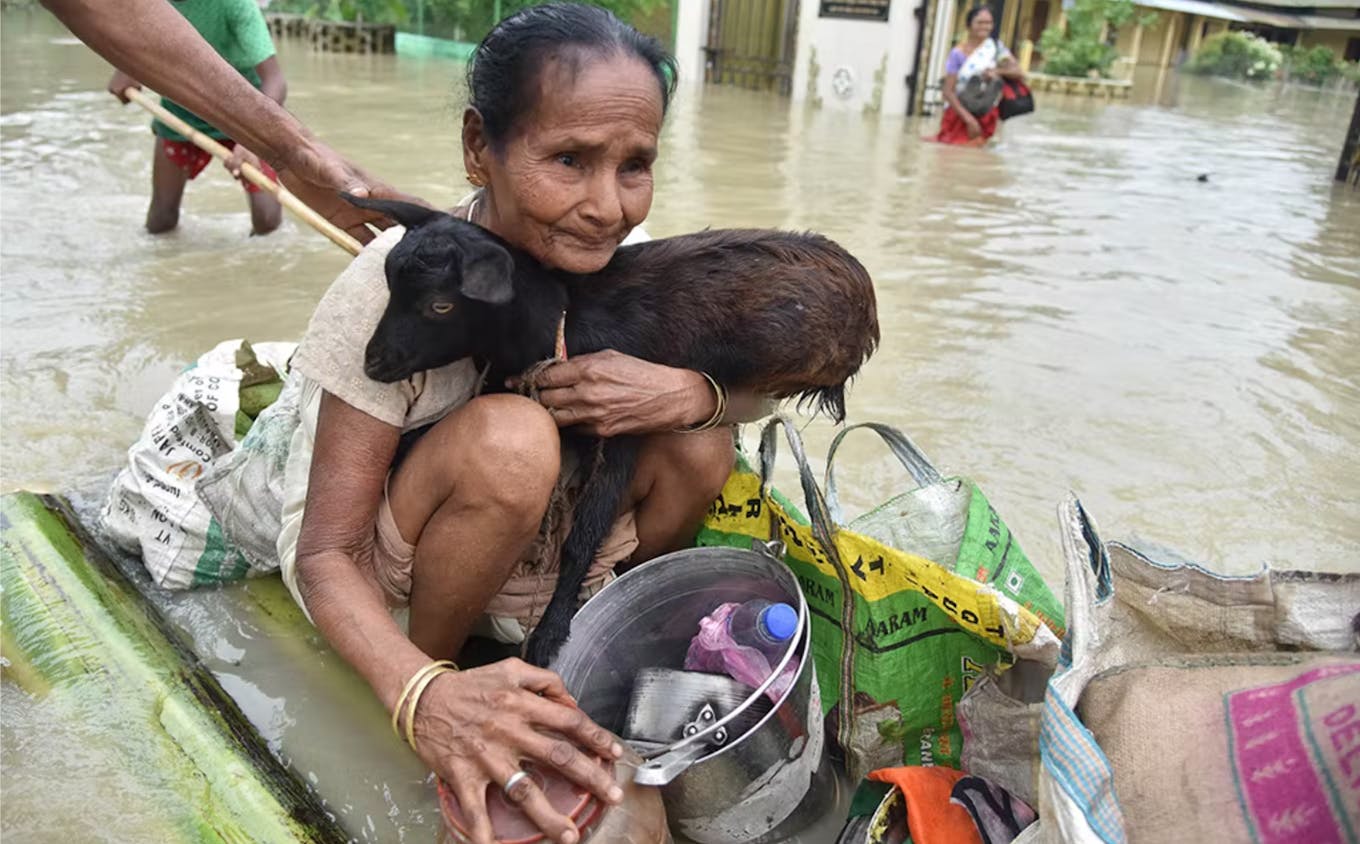
A flood-affected resident in India. Mawsynram, the world’s wettest place located in north-eastern India, recorded the highest single-day rainfall in more than half a century on 17 June. Image: Biju Boro via The Third Pole
India’s agriculture sector—highly dependent on the country’s yearly torrential rains—runs the risk of collapse, threatened by extreme climate events and a crippled global supply chain.
As India’s food price inflation reached record highs, researchers found that the summer monsoons’ intensity and timing, which were already rarely predictable, are becoming more erratic.
The biggest fear that scientists have is “what will happen to India’s food security in the years to come,” said Davinder Singh, an agriculture trade policy analyst.
10. Can organic farming be scaled to feed Asia?
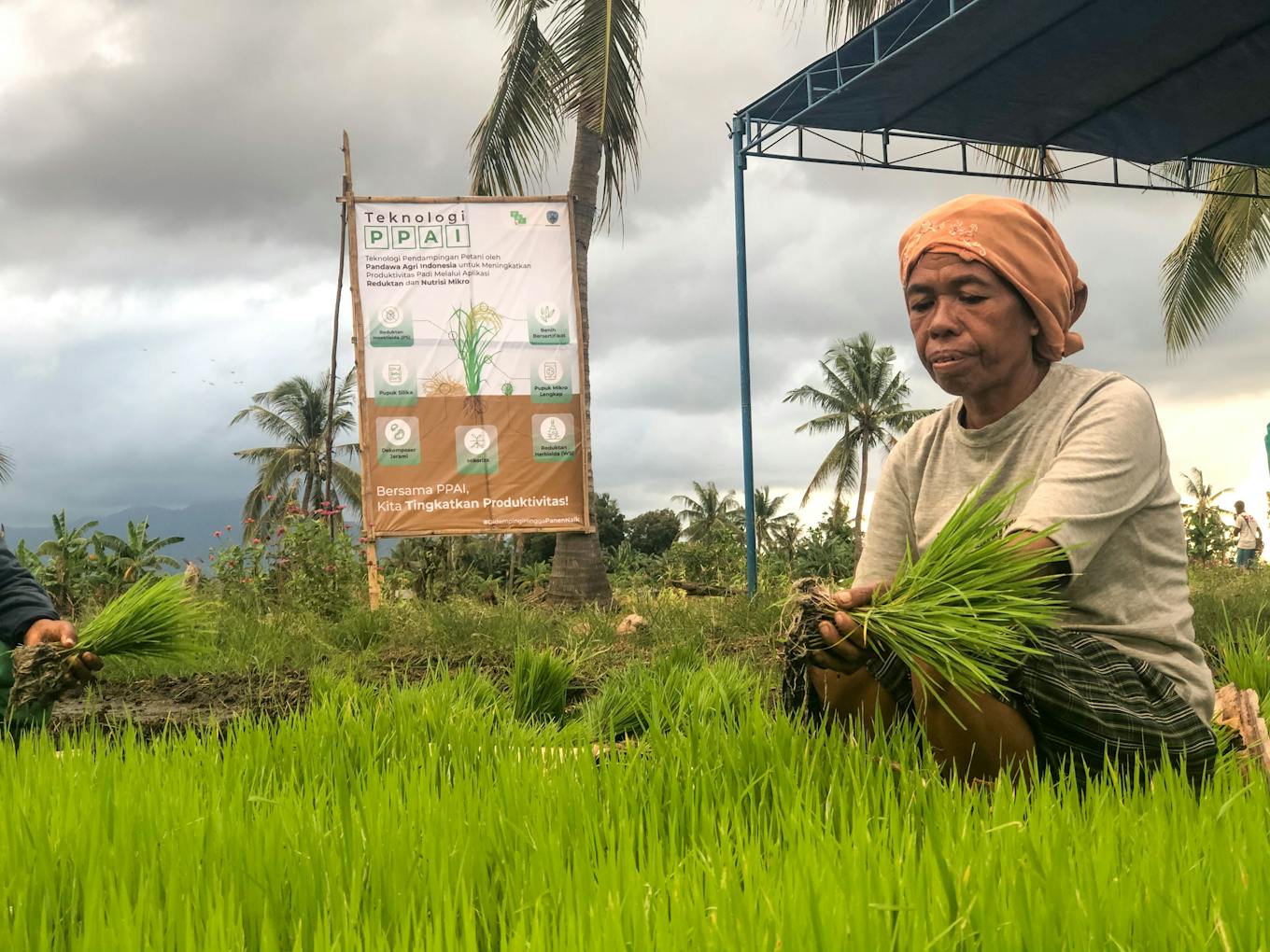
East Nusa Tenggara has 120,000 hectares of irrigated rice farms, but its land productivity lags behind other parts of Indonesia. Image: Pandawa Agri
With the world’s population on track to reach 10 billion by 2050 and Asia set to house up to half of it, will organic producers be able to sustainably cope with the demand, given so many more mouths to feed, Eco-Business asked.
Studies show that at least a 70 per cent increase in today’s production is necessary for the coming decades to avoid a food security crisis. However, supply in the region remains largely reliant on smallholder farmers, one of the groups most vulnerable to the exacerbating impacts of climate change.
As the year 2023 marks the halfway point towards the UN’s 2030 Sustainable Development Goals, Eco-Business will continue to bring you the most compelling and hard-hitting sustainability stories from across the region.
What would you like to read about? Let us know by writing news@eco-business.com. This story is part of our Year in Review series, which journals the stories that shaped the world of sustainability of 2022.

